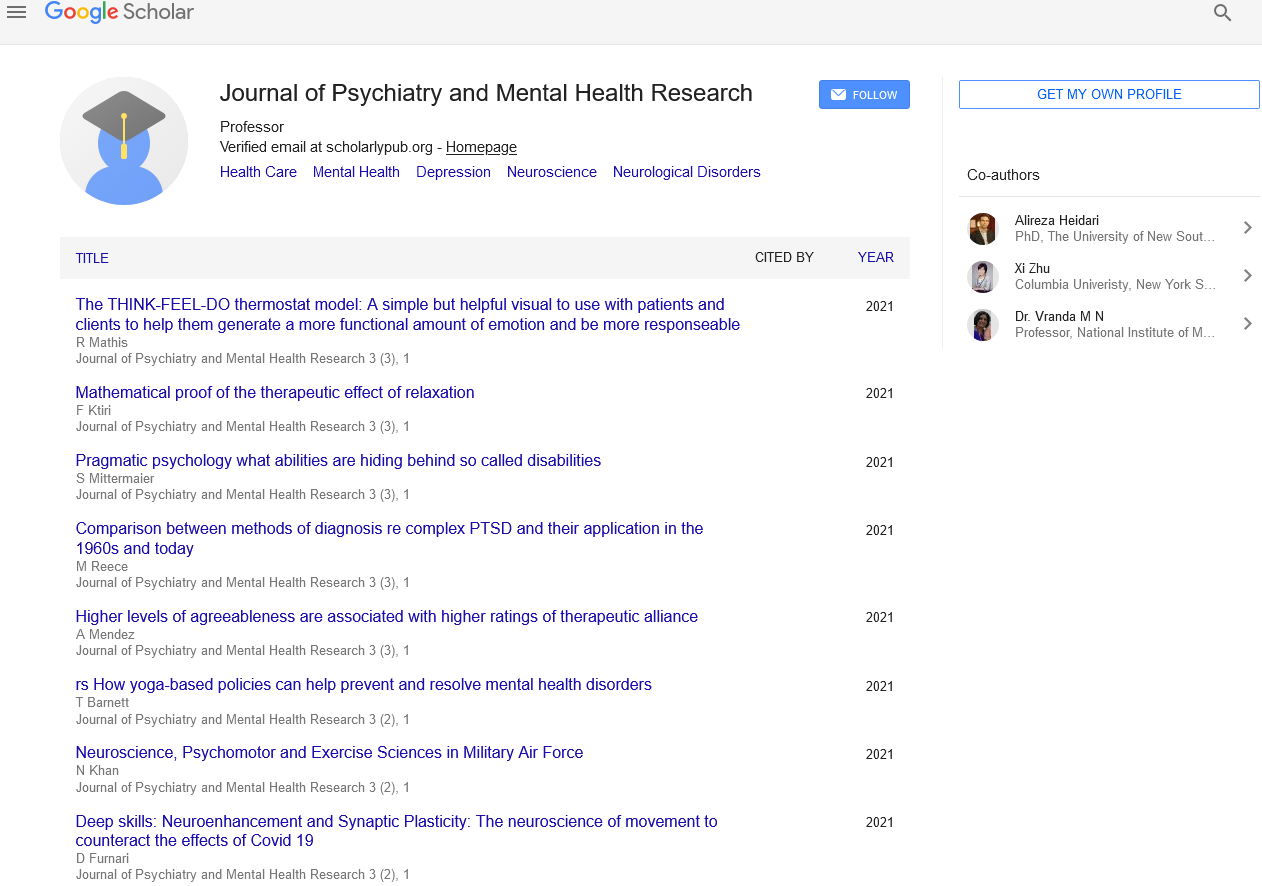
Sign up for email alert when new content gets added: Sign up
Allele-specific methylation-mediated phenotypic variations in monozygotic twins discordant for Schizophrenia
Webinar of 3rd World Congress on Mental Health & 8th International Conference on Brain Disorders and Therapeutics
February 03, 2022 | Webinar
Qi yang Li, Zhong ju Wang, and Cunyou Zhao
Southern Medical University, China
Posters & Accepted Abstracts: J Psychiatry & Mental Health Research
Abstract :
Background: The non-Mendelian features of phenotypic variations within psychiatric disorder-discordant monozygotic twins are likely complicated by environmental modifiers of genetic effects that have yet to be elucidated. Methods: We performed methylome and genome analyses of blood DNA from psychiatric disorder-discordant monozygotic twins to study how allele-specific methylation (ASM) mediates phenotypic variations. Results: We identified that thousands of genetic variants with ASM imbalances exhibit phenotypic variation-associated switching at regulatory loci. These ASMs have plausible causal associations with psychiatric disorders through effects on interactions between transcription factors, DNA methylations, and other epigenomic markers and then contribute to deregulated gene expression, which eventually increases disease susceptibility. We also experimentally validated the model that the rs4854158 alternative C allele at an ASM switching regulatory locus of EIPR1 encoding endosome-associated recycling protein interacting protein 1, is associated with demethylation and higher RNA expression and shows lower TF binding affinities in unaffected controls. An epigenetic ASM switching induces C allele hyper methylation and then recruits repressive Polycomb repressive complex 2, reinforces trimethylation of lysine 27 on histone 3 and inhibits its transcriptional activity, thus leading to down regulation of EIPR1 in schizophrenia. Moreover, disruption of rs4854158 induces gain of EIPR1 function and promotes neural development and vesicle trafficking. Conclusions: Our study provides a powerful framework for identifying regulatory risk variants and contributes to our understanding of the interplay between genetic and epigenetic variants in mediating psychiatric disorder susceptibility.




